After hours of heavy rain on September 30, Hanoi was submerged in a sea of water, many schools turned into “oases” because the entrances were flooded. As a result, in the evening and night of September 30, many families were for the first time in a situation where parents could not pick up their children, and students had to sleep at school.
Many people complained and criticized the education sector, especially the Hanoi Department of Education and Training, for being proactive and slow in making early decisions in notifying students to leave school early.
Sharing with VietNamNet , an education expert said that not only the Department of Education and Training but also the Hanoi education sector seemed quite passive in the natural disaster, heavy rain, and widespread flooding on September 30. According to him, Hanoi must have had experience from previous storms or being affected by storms, this is not the first time.
“The Hanoi education sector, including all schools, can be more proactive. Fortunately, my two children studying at two different schools were both notified to close at 6 a.m. on September 30. This was the decisiveness of the school principal, without waiting for the Hanoi Department of Education and Training to direct. The role of leaders is shown in decisive decisions. It is not wrong for leaders to choose safety, but when a situation affects the majority of students, teachers, and parents, it requires the leaders of the Hanoi Department of Education and Training to react quickly and adapt. People make decisions based on personal factors, but if leaders make decisions slowly, it will affect many people,” he said.
This education expert believes that natural disasters or emergencies happen almost every year, but it is not clear how decentralization and delegation of decision-making power in education are specifically regulated. Are there any standards for ward and commune leaders, cultural departments or principals to make decisions? Although regulations on decentralization and delegation of power already exist, the criteria are still quite vague, especially in the issue of assigning responsibility.
According to him, the lack of clear criteria also leads to grassroots leaders being afraid to make their own decisions for fear of responsibility (especially in the public sector) because school closures will affect thousands of families in each school.
“This is a weak point in local leadership. People often only make decisions within a 'safe framework' and do not dare to 'break through' because they are afraid of responsibility,” said the expert.
Therefore, according to this person, empowering and taking initiative for educational institutions is necessary, because school-related issues are sometimes local (for example, after the rain, some places are flooded, some are dry). "Where there is flooding, the school needs to proactively notify parents early and take responsibility for that decision. However, to do that, it requires local leaders and principals who dare to do it and take responsibility, but this is still a difficult story," he said.
Clip of Hanoi parents using buckets and basins to pick up their children from school on the afternoon of September 30:
Mr. Vu Khac Ngoc, a teacher in Hanoi, shared that he is a parent of 3 young children, 2 of whom have to go to school more than 10km away by bus. He himself was surprised by the heavy rain on the morning of September 30.
“At 6:30, when I left home, the rain was still light, so the children could use their personal umbrellas to get to the bus stop. I still thought it was just a normal shower, similar to the recent scattered rains after the storm. In fact, after only 2-3 hours, the rain continued with great intensity, making the situation serious,” Mr. Ngoc said.
However, Mr. Ngoc said that, on the management side, this incident shows that there is a lack of coordination between meteorological forecasting and related administrative decisions. “This is a noteworthy lesson for responding to natural disasters in the future,” Mr. Ngoc said.
According to Mr. Ngoc, in principle, the Department of Education and Training or the City People's Committee when making decisions still need to rely on consultation from hydrometeorological units.
"More importantly, it is necessary to develop specific standards and have detailed response scenarios for each situation, avoiding emotional decisions," he said.
He cited that, regarding weather, there are clear regulations: Primary school students are allowed to stay home if the temperature is below 10°C. Regarding rain, due to the complexity and differences in each area, the city can delegate the right to the school principal to decide to temporarily suspend classes, with responsibility for explanation.
This teacher believes that such clear regulations will create discipline and avoid arbitrariness in granting leave of absence. However, on the other hand, administrators also need to understand that in modern society, when living conditions are higher, the standards of safety and convenience of parents and students are also different from before. Especially when online learning is no longer strange: Students have enough devices and have been familiar with this form since the Covid-19 period. Therefore, in every decision, flexibility is needed to bring the most convenience to the people.
Source: https://vietnamnet.vn/phu-huynh-than-phien-nganh-giao-duc-ha-noi-thieu-chu-dong-khi-mua-ngap-lon-2447958.html


![[Photo] Hanoi morning of October 1: Prolonged flooding, people wade to work](https://vphoto.vietnam.vn/thumb/1200x675/vietnam/resource/IMAGE/2025/10/1/189be28938e3493fa26b2938efa2059e)



![[Photo] President of the Cuban National Assembly visits President Ho Chi Minh's Mausoleum](https://vphoto.vietnam.vn/thumb/1200x675/vietnam/resource/IMAGE/2025/10/1/39f1142310fc4dae9e3de4fcc9ac2ed0)
![[Photo] Keep your warehouse safe in all situations](https://vphoto.vietnam.vn/thumb/1200x675/vietnam/resource/IMAGE/2025/10/1/3eb4eceafe68497989865e7faa4e4d0e)
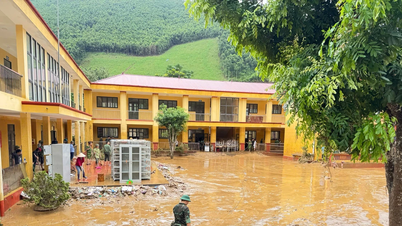




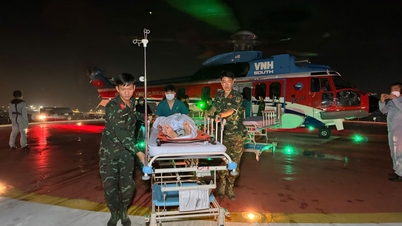


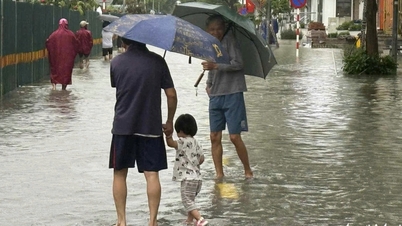

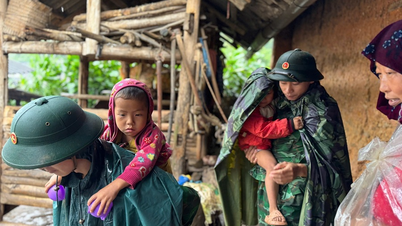




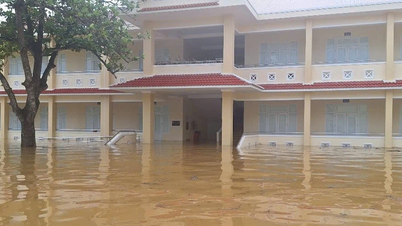

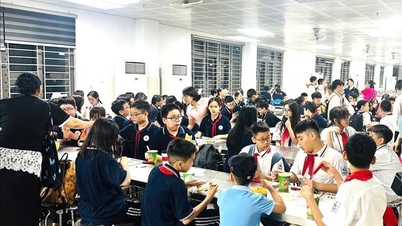









































































Comment (0)